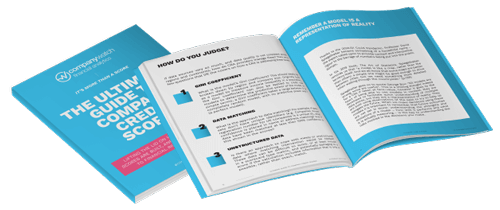What Does Insolvency Mean in Business?

No matter how well-run a business is, it can still fall victim to financial troubles. Business insolvency is the last, dreaded stage of these troubles. The consequences of business insolvency make it integral for companies to know what it means, how to prevent it, and how to deal with it should it arise.
For proactive insolvency management, Company Watch provides a range of in-depth business solutions that accurately predict, identify, and analyse business insolvency indicators.
In this blogpost, we break down the fundamentals of business insolvency for you. This way, you won’t be caught off guard when the first signs of business insolvency start to manifest. We cover:
- What is business insolvency?
- Common causes of business insolvency
- Protecting from business insolvency
What is business insolvency?
Business insolvency is a critical financial state where a company is unable to meet its financial obligations. It often leads to the company falling into administration or liquidation.
Read about Octagon Developments, a luxury house builder that recently went into administration, and how the Company Watch platform predicted its insolvency years in advance by analysing its H Score®.
When a business becomes insolvent, it signifies that it lacks the necessary funds to pay off its debts, such as loans, supplier bills, and employee wages.
According to Investopedia, 20% of SMEs in the UK fail in their first year and go insolvent. Understanding the complexities of business insolvency is crucial for both business owners and creditors. By recognising the early warning signs and taking proactive steps, businesses may be able to avoid insolvency or mitigate its impact.
Read our business insolvency guide to learn more about insolvency law in the UK.
Common causes of business insolvency
Poor cash flow management
More often than not, internal mismanagement leads to business insolvency and small business bankruptcy. Currently, a staggering 82% of businesses fail due to cash flow problems.
A major cause of poor cash flow is late payments. SMEs are particularly susceptible to late payments by customers, causing long-term cash flow problems and eventual insolvency. According to a report by Good Business Pays, 400,000 small businesses were at risk of failing due to cashflow problems in 2022.
Company Watch’s Payment Practices Data empowers businesses with invaluable insights into the payment behaviours of the companies they engage with. This allows businesses to tackle late payments head on.
Apart from regular credit control and cost reduction measures that define cash flow management, it’s important to prioritise accurate financial forecasting to see where and how money should be spent.
Financial forecasting entails using past financial data and current market trends to make informed decisions about future financial periods. With Company Watch’s Forecast View™, this process is made much simpler. You can quickly test the resilience of companies under a wide range of entirely customisable financial scenarios.
Economic downturns
Economic downturns can have a devastating impact on businesses of all sizes. Typically, companies will have to set aside extra time, effort, and budgets to battle the negative consequences that economic recession can have. Companies that fail to do this or simply cannot afford to do this are likely to fall into business insolvency.
For instance, when COVID-19 hit, retail markets on the high street suffered a significant decline. So much so, that the British Retail Consortium labelled the COVID sales decline as “the worst on record”. As a result, in 2022, 1843 retail companies became insolvent.
Fortunately, there are proactive measures you can take to lessen the impact of economic downturns as much as possible.
Apart from proactive financial management and budgeting, a good way to weather economic storms is to have a secure client base. Cultivate strong customer relationships through exceptional service and relationship management.
Another thing to prioritise is financial risk management. Implement a comprehensive financial risk management strategy, including emergency funds and adequate insurance coverage.
Protecting from business insolvency
Company Watch has helped hundreds of companies understand their financial risk levels and reduce the risk of business insolvency. Our powerful risk analysis and data modelling platform provides important and relevant insights, allowing you to manage financial risk.
Our platform also allows you to map medium to long-term risk alongside short-term risk. This means you have a more holistic understanding of where yours, or another business stands, allowing you to make more informed decisions moving forward.
Key takeaways
- Business insolvency is a critical financial state where a company is unable to meet its financial obligations.
- Internal causes of business insolvency are centred around poor cash flow management, while economic downturns are an obvious external cause.
- Company Watch can help companies understand their financial risk levels and reduce the risk of business insolvency.

